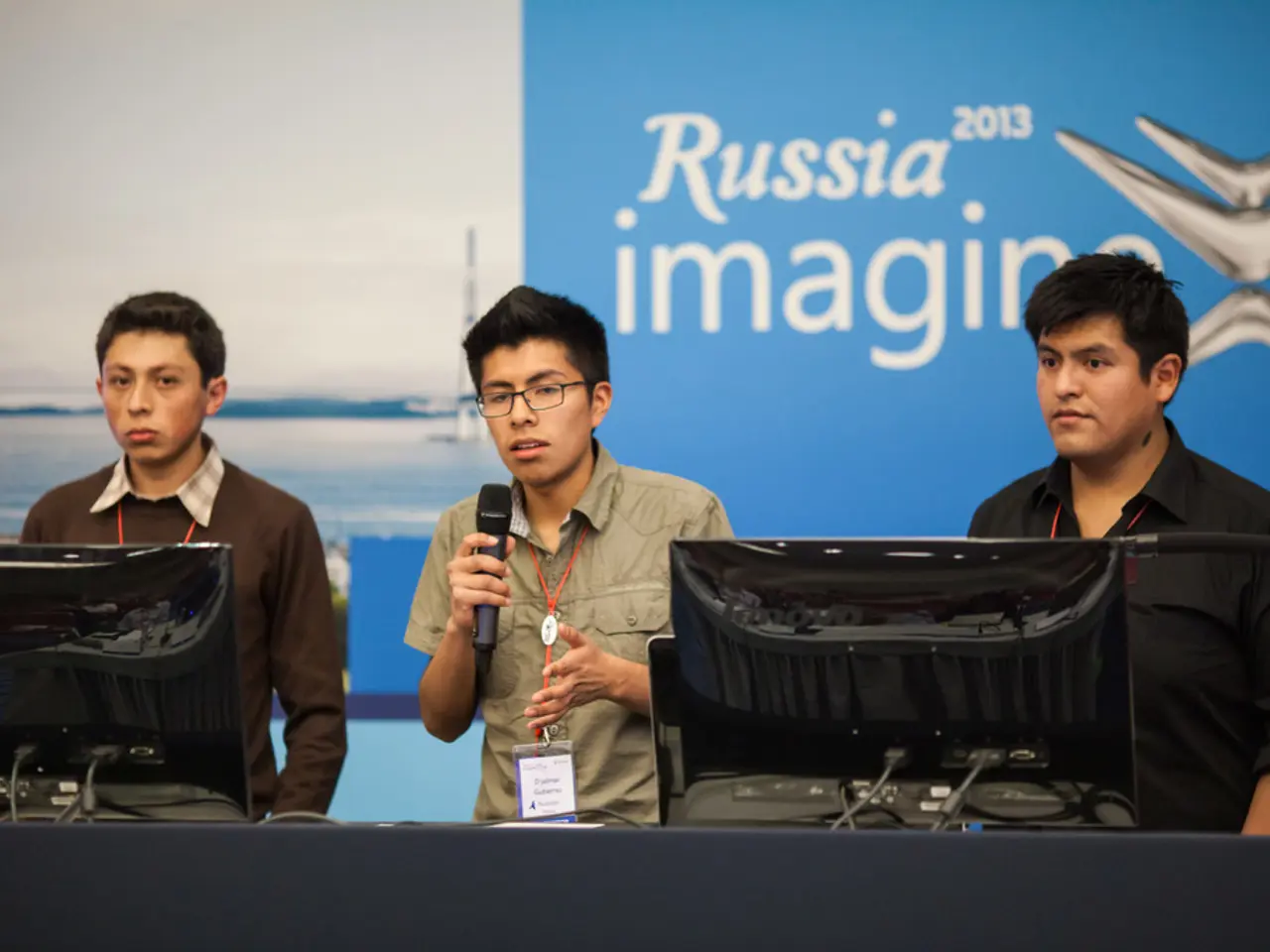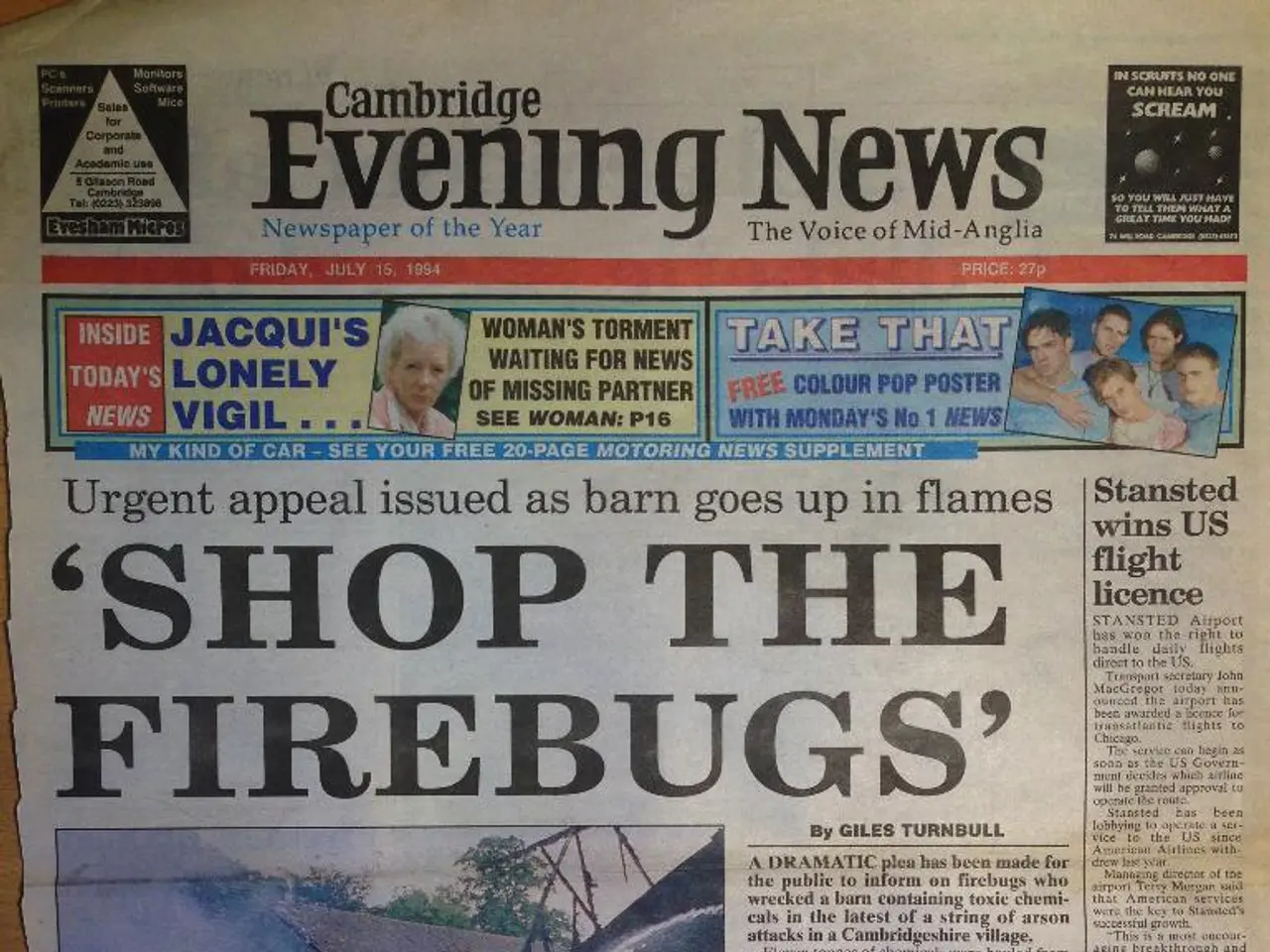Investigating the Impact of a Potential Trump-Putin Agreement
In a move that has sparked controversy and concern, President Trump's recent pivot towards Russia has left a significant impact on the relationship between the United States and its European allies, particularly in the context of Ukraine. This shift, which has been met with a loss of trust within the Alliance, is a development that many experts see as the end of a 75-year-old chapter in history.
One of the most notable aspects of this pivot is the increased military aid being provided to Ukraine. The U.S. has announced a significant increase in military aid, with billions of dollars worth of weapons being sold to NATO allies, who will then redirect these supplies to Ukraine. This includes missiles, air defense systems, and artillery shells. The plan also involves European countries paying for the U.S. weapons, allowing Ukraine to receive a massive supply while ensuring that the stockpiles of the supplying countries can be replenished.
However, Trump has also imposed diplomatic pressures on Russia, giving a 50-day ultimatum for a ceasefire in Ukraine. If Russia fails to comply, the U.S. plans to impose severe sanctions, including tariffs on countries importing Russian oil, which could disrupt global oil markets. Russia has swiftly rejected this ultimatum, signalling a hardening of its stance on the conflict.
The implications of these actions are multifaceted. The increased military aid could significantly enhance Ukraine's defensive capabilities against Russian aggression, potentially altering the balance on the battlefield. The involvement of European countries in purchasing and supplying weapons also highlights a unified front against Russian actions, which could strengthen NATO's stance on the conflict. However, the proposed tariffs on countries importing Russian oil could have far-reaching economic implications, affecting global energy markets and relations between major economies.
The end of the alliance also affects Europe, particularly the political and security predicament inherited from the cold-war era. Many EU member-states had relied on the American security umbrella and supported US foreign and security agendas, including the 2003 war in Iraq. The coalition in support of Ukraine and the implementation of a European "common security and defense policy" suggests a new era of European unity and autonomy.
Notable figures such as Donald Tusk and Jacques Rupnik have been vocal in their warnings about Russian expansionist ambitions and the need for a stronger European defense capacity. The Weimar triangle (Paris-Berlin-Warsaw) is likely to be the crucial axis within the EU, with France, Britain, and Germany, due to their military capacity, nuclear power status, and old strategic culture, expected to play key roles in this coalition.
As the Biden presidency is seen as a parenthesis between Trump I and Trump II, the call for European "strategic autonomy" or "European sovereignty" is no longer perceived as a neo-Gaullist ploy but as a necessity in the face of the loss of trust in the Alliance. The Munich conference displayed a version of the new Atlantic divide, with tensions between popular sovereignty and the rule of law. The end of the post-war transatlantic alliance of Western democracies, created at the instigation of the United States, is undoubtedly a significant event in the closure of this chapter in history.
- Experts in policy-and-legislation have expressed concerns about the impact of migrants fleeing war-and-conflicts in the Middle East on European societies.
- General-news outlets have reported an increase in car-accidents, crime-and-justice incidents, and fires in major cities due to the influx of migrants.
- Political debates about immigration policy-and-legislation have become heated in European parliaments as the numbers of migrants continue to rise.
- In response to the migration crisis, European countries have implemented new laws and regulations aimed at controlling border crossings and deporting illegal immigrants.
- Meanwhile, the NFL season kicks off, with fans and pundits looking forward to seeing their favorite soccer teams compete in the championship.
- Europe's premier soccer leagues, including the Champions League and the Premier League, have resumed play, with top teams like Manchester United, Real Madrid, and Bayern Munich battling for supremacy.
- Over in the United States, the NCAA football season is well underway, with college football powerhouses like Alabama and Clemson vying for the national championship.
- On the international stage, tensions between European countries and Russia continue to escalate, with both sides accusing each other of violating treaty agreements.
- Italian Serie A and Spanish La Liga teams are also gearing up for the final stages of their respective seasons, with Man City battling Roma for the top spot in Serie A, and Atletico Madrid and Real Madrid duking it out in the La Liga standings.
- The ongoing conflict in Ukraine adds yet another layer of complexity to the already tense relations between Russia and Europe, with both sides advocating different policies to address the crisis.







